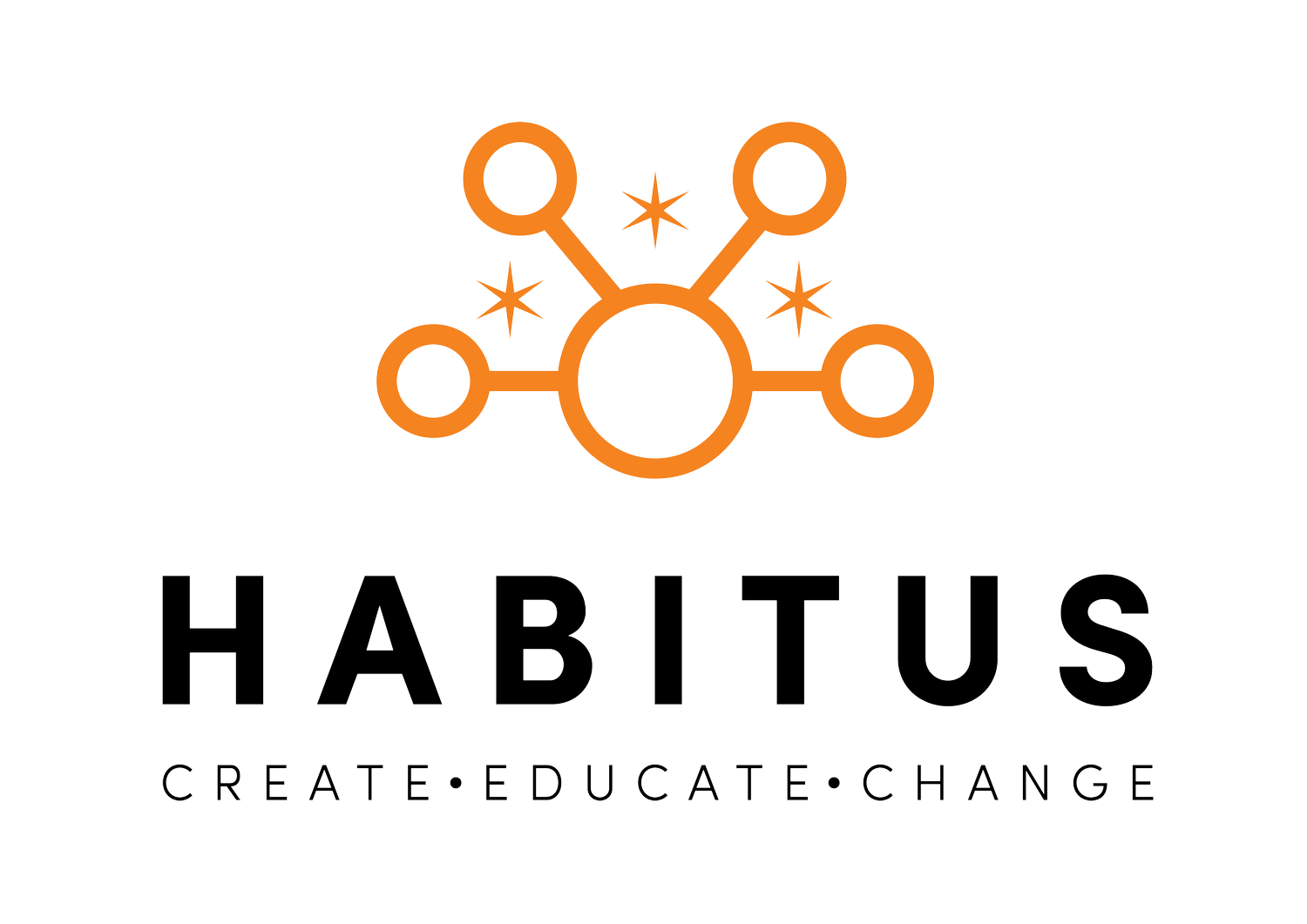Facilitation Training
People work better in groups. Groups work better with quality facilitation training with Habitus. Quality facilitators bring out the value inherent in every participant and are the primary driver of effective outcomes. They understand and manage the direction of the group, the mood of the room, and the energy everyone brings to the task.
They are the difference between frustrating, ineffectual teams, and deep, meaningful change being realised for not just your organisation, but in the hearts of everyone involved.
Facilitation is skill that requires understanding people and how to get the best out of them. Fortunately it’s something we can all get better at, with practice, and with the right training facilitation.
Habitus has trained and lead dozens of incredible facilitators in organisations that are driving change in areas as diverse as environmental management, end of life care, emotional intelligence in schools, corporate culture and professional learning
Book your spot for our next Facilitation Training on August 26 and 27 in Sydney, Open to the public.
What’s involved
Habitus’ facilitation training in Sydney is designed to bring out the facilitator in all of us. We’ve developed simple frameworks for understanding and managing group dynamics. We bring the se frameworks to life to create experiential knowledge in participants through real-world practice.
Participants learn from evidence-based research as well as the personal experiences of our team and each other.
We’ll teach you to bring energy, create calm, discover depth, drive ideation, build connection, and more importantly, how to know when and where to do so.
Participants will leave feeling more confident with a comprehensive toolkit for improving their practice, and a new network of people to continue to learn from and share their experiences with.
Program Outline
Module 1 - The Facilitator
What are the mindsets and dispositions required for great facilitation training? What do you need to bring into the room, to get the most out of it? Our first session focuses on the personal skills and approach of facilitation, including:
emotional intelligence, self awareness
and self-acknowledgement;
own your bias and privilege;
how to be authentic;
embracing discomfort and
vulnerability;
playfulness and improvisation;
collaboration - moving from ‘I’ to ‘we’
process oriented, not goal fix
Module 2 - The Room
How do you facilitate a room full of people with their own emotions, expectations, approaches, intentions and needs? How do you bring them along on the journey together, while also celebrating and embracing their diversity? We’ll tackle;
creating a psychologically and emotionally safe space;
working with resistance - getting curious, not furious and reframing negativity;
deep listening/ humble enquiry/socratic questioning;
leveraging the wisdom of the room.
Module 3 - The Toolbox
Great facilitators aren’t formulaic, they connect deeply with the needs of the room and can draw upon a diverse toolbox of resources to find the perfect activity, game or story to match. We’ll cover in training facilitation;
icebreakers, energisers, settlers, groupers and reflectors;
creating group agreement and direction, setting boundaries;
storytelling and circle work;
games for trust, connection, openness;
asking artful questions;
mixed modalities - connecting heads, hearts and hands.
“I absolutely loved every aspect of the Facilitation Training delivered by Habitus. It was an incredibly enriching experience that surpassed my expectations. Firstly, Dr Monty Badami’s expertise as an anthropologist brought a unique perspective to the training, emphasising the importance of human-centred interactions. This approach resonated deeply with me and the team as it highlighted the significance of authenticity and storytelling in leadership. The atmosphere created during the training was one of warmth and openness, allowing everyone to connect on a human level. I appreciated the emphasis on creating a psychologically and emotionally safe space, which fostered genuine dialogue and collaboration. Overall, I loved how the training encouraged us to embrace vulnerability and authenticity, ultimately empowering us to lead with empathy, creativity and have some fun while we do it!
I gained a deeper understanding of emotional intelligence, self-awareness, and the importance of authenticity in leadership. The practical sessions and storytelling were a definite highlight for the team, providing real life tools and strategies to engage and inspire others. I learned how to create a psychologically safe environment where individuals feel empowered to share their ideas and perspectives openly. I also learned the art of deep listening and humble inquiry, (Socratic questioning!) which are essential skills for effective facilitation and collaboration. Overall, I am grateful for the wealth of knowledge and skills I acquired during the training, which I am eager to apply in my facilitation journey.”
Rebecca McCulloch, Executive Coordinator, Western Sydney University









